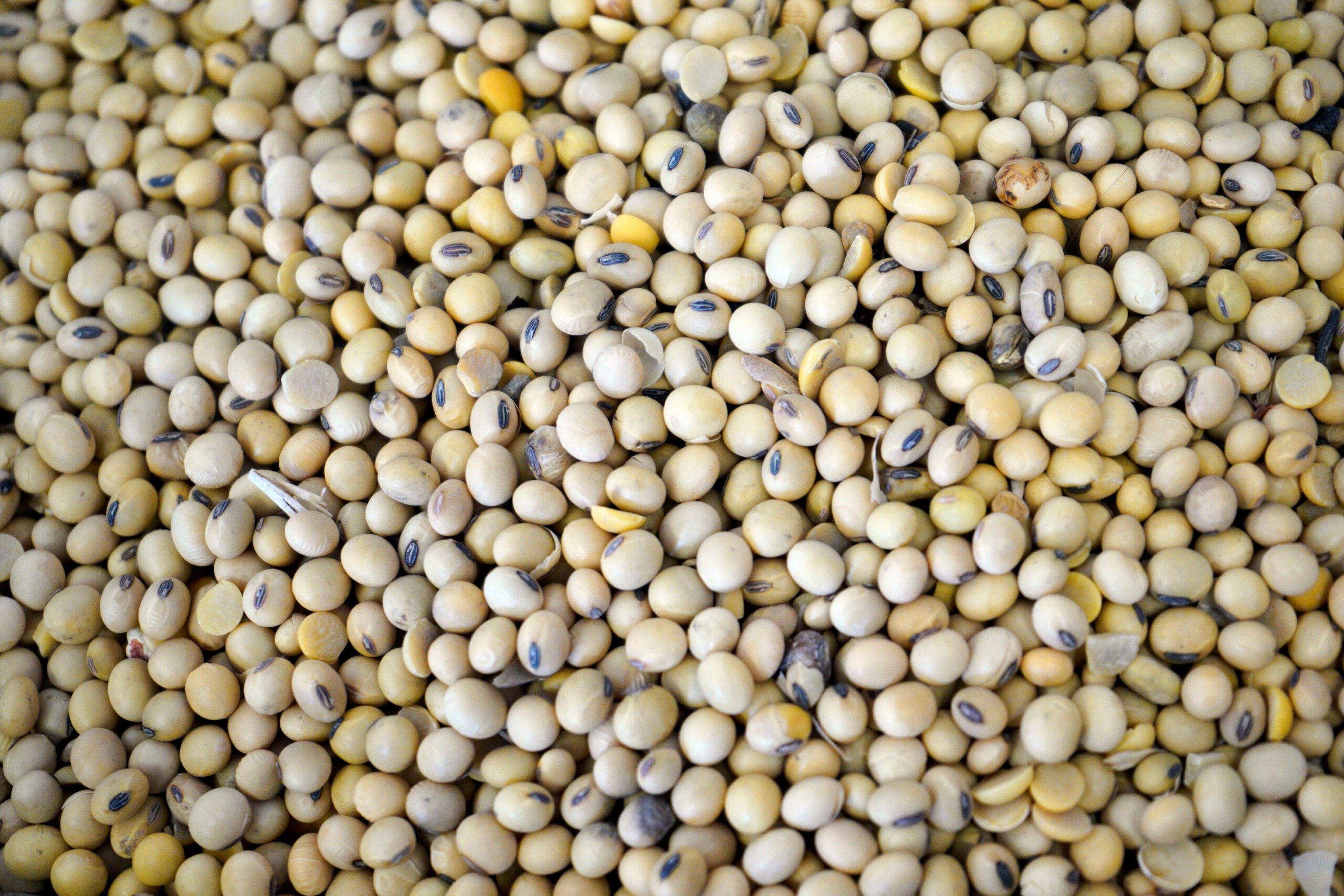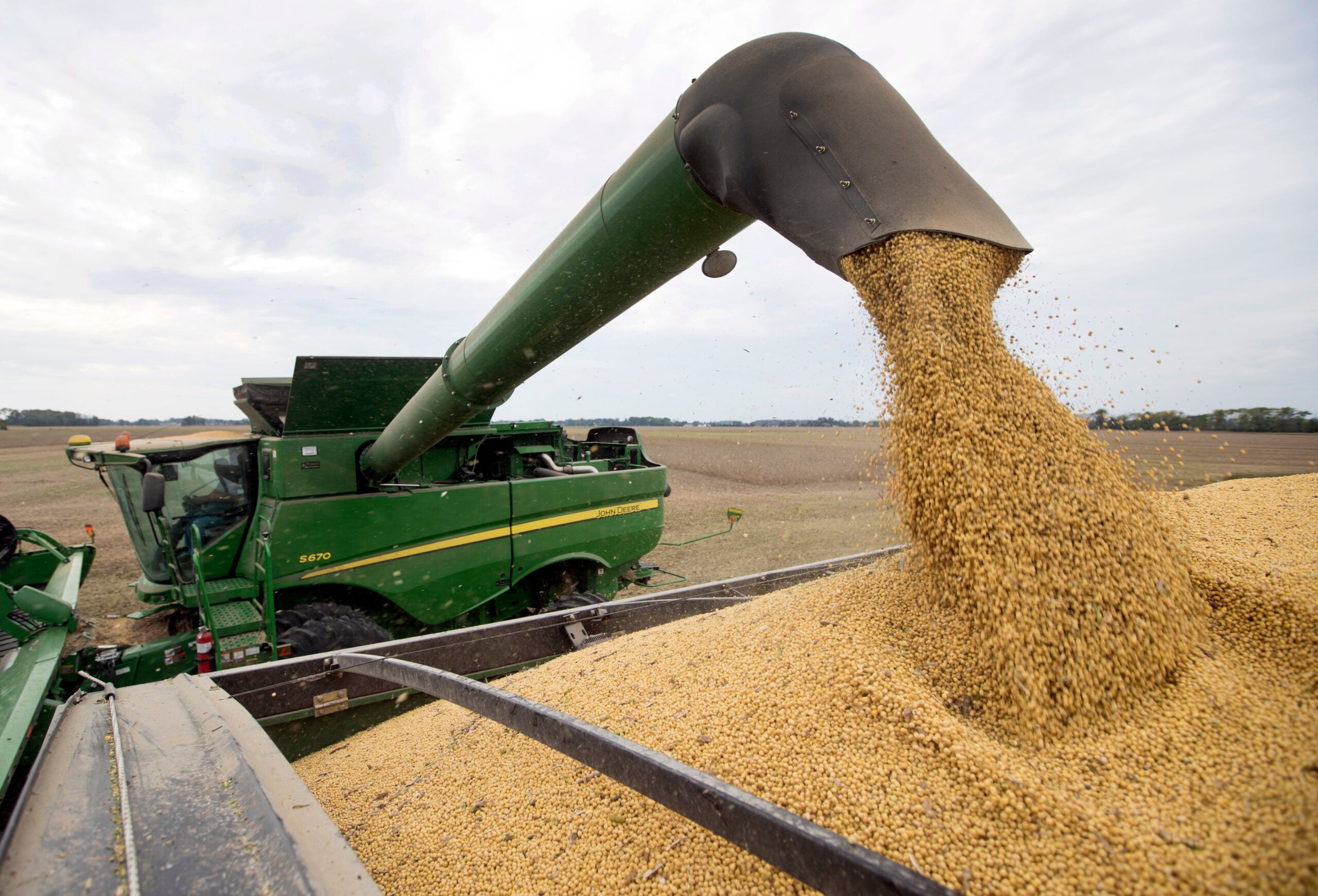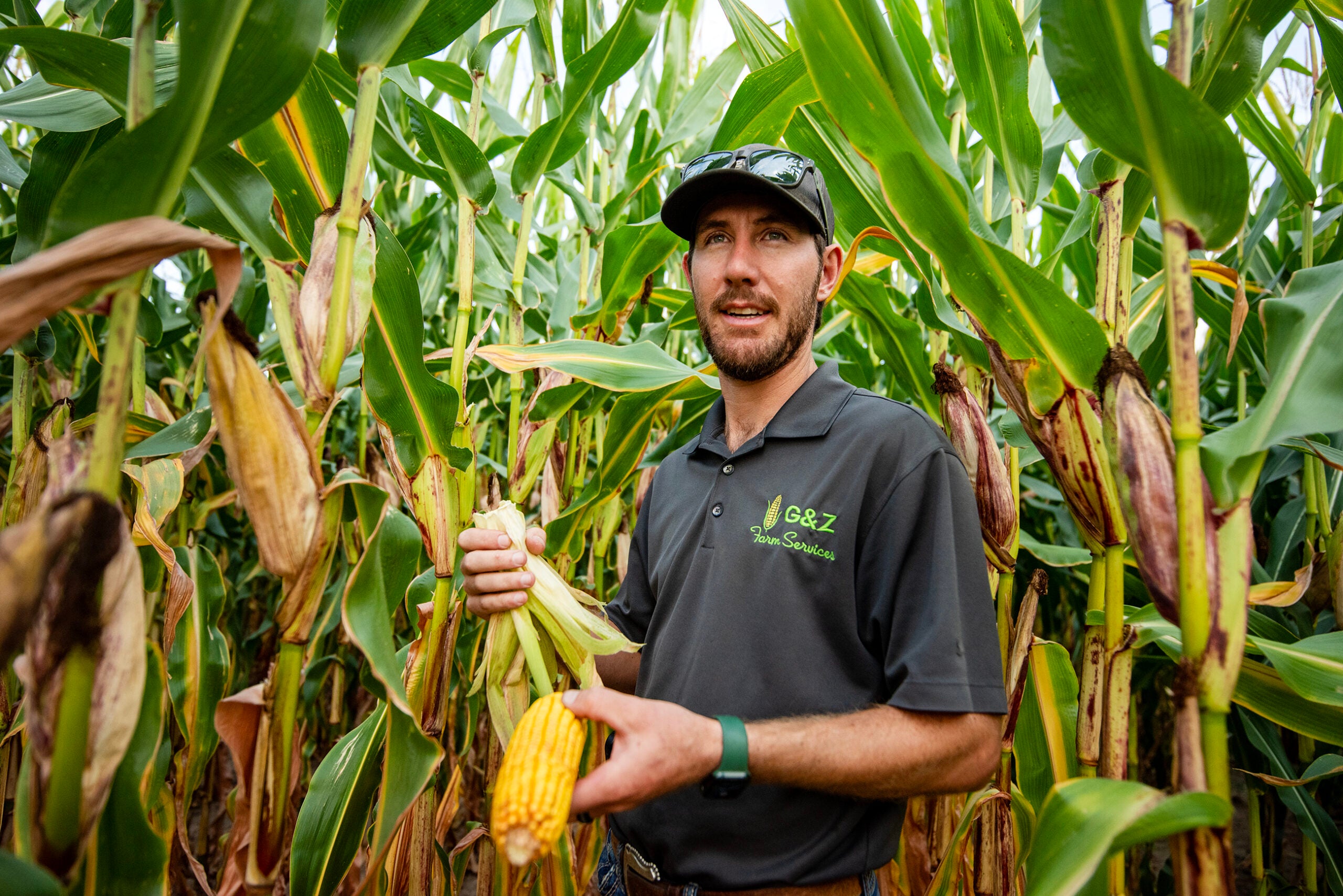President Donald Trump during his latest campaign called tariff the “most beautiful word in the dictionary” and pledged to tax imports at 60 percent or more. He also threatened John Deere with 200 percent tariffs if it moved production to Mexico.
Tanner Johnson, a soybean farmer in northwest Wisconsin and a board member of the American Soybean Association, remembers the pain from Trump’s tariffs the first time he was in office.
Johnson told WPR’s “Wisconsin Today” that the trade war from Trump’s first term cost producers in the U.S. around $27 billion after other countries retaliated with their own tariffs. The U.S. exports about 60 percent of its soybeans to China, and there aren’t any other markets large enough to pick up that slack if China reduces soybean imports from the United States.
News with a little more humanity
WPR’s “Wisconsin Today” newsletter keeps you connected to the state you love without feeling overwhelmed. No paywall. No agenda. No corporate filter.
“Soybeans are the No. 1 ag export, so we took the brunt of that loss,” Johnson said. “It certainly was not a fun time back in those days.”
But Johnson added that it remains to be seen what Trump will do this time as president. Johnson remains hopeful that the country will avoid a full-scale trade war.
“I’m trying not to be an alarmist,” he said. “I think being an optimist is why we continue to farm every day.”
On Trump’s first day in office Monday, he told reporters that he would likely enact 25 percent tariffs on products from Mexico and Canada — the first and second largest importers of U.S. products, respectively — by Feb 1.
During Trump’s first term, he provided subsidies to farmers to offset losses they suffered from the trade war. But Johnson said he’d prefer open trade to subsidies.
“Any farmer in this country will tell you they want trade, not aid,” he said. “I just want to be able to exercise the opportunities we have in the global market. Farmers themselves are working very, very hard to continue to grow those. The (opportunities) we have today, a lot of those came from farmers jumping on airplanes and traveling internationally and developing those relationships.”
“Wisconsin Today” spoke with Johnson and Thomas Kemp, chair and professor in the Department of Economics at the University of Wisconsin-Eau Claire, to learn how another trade war might affect the economy.
Kemp said trade tends to realign when tariffs are enacted. Producers and companies will do whatever they can to avoid buying or selling products affected by tariffs.
“So for example, trade with China drops off, but trade with Mexico picks up. So goods and services are just moving in different directions around the globe,” Kemp said.
But some producers — such as soybean farmers selling to China — can sometimes have a hard time finding a market to replace one damaged by tariffs.
Johnson said tariffs could hurt farmers in other ways. For instance, a lot of fertilizer and farm equipment is imported, so a trade war could increase production costs.

Trump has argued that high tariffs will simply encourage companies to build factories in the United States, creating more jobs. Kemp said it’s much more difficult to move production that quickly.
“The time frame that would be necessary for a radical realignment of domestic production would be decades, certainly not months,” he said.
As a large nation, Kemp said that the U.S. certainly could survive without importing a lot of products. But, he added, “Do we want to?”
“It would be very challenging to grow mangoes here in Wisconsin, and I like mangoes. And I imagine there’s a lot of folks in China who really enjoy good Wisconsin ginseng and good Wisconsin soybeans,” Kemp said.
“When we talk about cutting ourselves off from the world, this is what we’re doing,” he continued. “We’re essentially saying that we don’t want to trade goods and services with that other country. And the market suggests that we like those goods and services, and folks abroad like our goods and services. We end up making each other better off as a result of that trade.”






